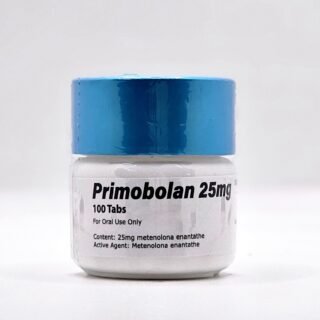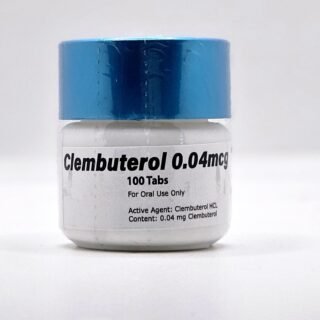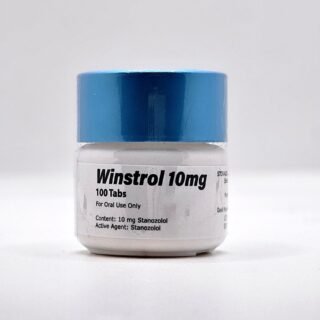Category
- Best Peptides for muscle growth
- Geno Pharma Domestic Warehouse 2 (Canada&USA) (Ships in 1–3 days) Faster!
- GP(Domestic Shipping US) Warehouse 1
- Human Pharma Premium
- Phar Labs Premium-Select
- Steroids on Sale USA, Real Steroids Online
- New arrivals in USA
- Most popular steroids in USA
- Antiestrogens / Gonadotropins
- Bangkok Steroid USA
- Biopharma Steroid USA
- British Dragon
- Anabolic Steroids for Horses
- Fat-burners
- Gen Pharma USA
- Medical Pharma Steroid USA
- Medical Tech Steroid USA
- Novocrine Steroids
- HGH USA
- Omega Labs Steroid USA
- Rotterdam Steroids USA
- SARMs USA
- Sciroxx
- Sydgroup Steroid USA
- Big vetenary Steroid USA
- Watson Steroids
- XT Labs Steroids
Most Popular steroids USA
-
 Primobolan Pills 25mg 100 pills Domestic USA
Primobolan Pills 25mg 100 pills Domestic USA
$99.00Original price was: $99.00.$85.00Current price is: $85.00. -
 Clenbuterol for Sale 40mcg 100 Tabs - GP Premium Domestic USA
Clenbuterol for Sale 40mcg 100 Tabs - GP Premium Domestic USA
$99.00Original price was: $99.00.$65.00Current price is: $65.00. -
 Winstrol Tablets for Sale 10mg 100 pills GP Domestic
Winstrol Tablets for Sale 10mg 100 pills GP Domestic
$99.00Original price was: $99.00.$75.00Current price is: $75.00.

Testosterone Replacement Therapy Cost : How to Get Affordable Treatment

If you’re dealing with fatigue, low energy, or a fading sex drive, testosterone replacement therapy (TRT) could be the answer. But let’s address the elephant in the room: how much does testosterone replacement therapy cost?
For men in the U.S., TRT prices vary widely depending on where you go, what’s included, and the type of testosterone you choose. Many providers charge upwards of $129/month, but some online providers, like SteroidsOnlineUSA.com, offer affordable plans starting at just $59/month.
Let’s break it all down—so you can make the smartest decision for your health and your wallet.
Table of Contents
ToggleUnderstanding Testosterone Replacement Therapy (TRT)
Testosterone Replacement Therapy (TRT) is a medical treatment designed to address low testosterone levels in individuals. This section delves into the definition of TRT and the reasons for its consideration.
What is TRT?
Testosterone Replacement Therapy involves the administration of testosterone to individuals with low levels of the hormone, commonly known as testosterone deficiency or hypogonadism. This therapy aims to restore testosterone levels to a normal range, which is essential for several bodily functions.
Why Consider TRT?
There are multiple reasons for individuals to consider undergoing TRT. The therapy not only addresses hormonal imbalance but can also significantly improve quality of life.
Addressing Low Testosterone Levels
Low testosterone can result from various factors, including aging, medical conditions, and certain medications. Symptoms of low testosterone may include fatigue, reduced libido, depression, and decreased muscle mass. TRT aims to alleviate these symptoms by restoring hormone levels to their optimal range.
Benefits for Men with Low T
- Improved energy levels and reduction in fatigue.
- Enhanced libido and sexual performance.
- Increased muscle mass and strength.
- Better mood and mental clarity.
- Improvement in bone density, reducing the risk of fractures.
By addressing hormonal imbalances, TRT provides crucial benefits that can lead to a healthier, more active lifestyle. Understanding these aspects helps individuals make informed decisions regarding their health.
The big question is: what’s it going to cost you?
How Much Does Testosterone Replacement Therapy Cost?
The cost of TRT depends on several factors: the type of testosterone, the provider, and any additional fees for tests or prescriptions. Here’s a quick breakdown of typical costs in the U.S.:
TRT Cost Breakdown
| Type of TRT | Cost Range (Competitors) | SteroidsOnlineUSA.com Price |
|---|---|---|
| Injections | $129–$300/month | $59/month |
| Gels | $300–$600/month | N/A |
| Pellets | $300–$750 per procedure | N/A |
| Patches | $350–$700/month | N/A |
Why Are Competitors So Expensive?
Traditional clinics often bundle hidden costs into their pricing:
- Blood tests: $75–$150.
- Consultation fees: $50–$150 per visit.
- Prescription fees: $50–$100 annually.
This means your monthly $129 TRT plan could easily balloon to over $200/month.
Cost Comparisons with and without Insurance
The presence of insurance can heavily influence the final out-of-pocket expenses for patients undergoing TRT. Key points include:
- With Insurance: Many policies cover some portion of TRT, leading to significant savings for patients who qualify. Coverage often depends on medical necessity, as assessed by a healthcare provider.
- Without Insurance: Patients without coverage face the full brunt of expenses, making the financial burden notably higher. In this case, monthly costs can average from $1,000 to $2,000 depending on the therapy used.
- Cost Sharing Variability: Insurance plans vary widely in terms of covered therapies, making it essential to check specific policy details.
Insurance and TRT Coverage
Understanding the insurance coverage for testosterone replacement therapy (TRT) is crucial for managing expenses effectively. Different insurance policies have varying rules regarding the coverage of TRT, which can significantly impact affordability for patients seeking this treatment.
Does Insurance Cover TRT?
Many insurance plans do provide coverage for TRT if it is deemed medically necessary. However, coverage may vary widely based on the specific plan and provider.
Criteria for Coverage
To qualify for insurance coverage, patients typically need to meet certain criteria:
- A formal diagnosis of low testosterone, often referred to as hypogonadism.
- Documented symptoms related to low testosterone levels, such as fatigue, depression, or sexual dysfunction.
- Proof of low testosterone levels through blood tests, which may need to be repeated depending on the insurer’s guidelines.
Common Insurance Policies
Many health insurance policies may cover TRT, but the extent of coverage can depend on:
- The insurance company.
- The specific terms of the individual policy.
- State regulations pertaining to hormone therapies.
Medicare and Medicaid Considerations
Both Medicare and Medicaid may offer coverage for TRT, but there are specific guidelines:
- Medicare typically covers TRT if it is medically necessary and meets both state and federal requirements.
- Medicaid coverage can vary by state, as each state administers its own Medicaid program. Patients are advised to check local regulations.
Out-of-Pocket Costs
Even with insurance, there can still be significant out-of-pocket costs associated with TRT, including:
- Copayments for doctor visits and consultations.
- Deductibles that must be met before coverage kicks in.
- Costs for medications that may not be fully covered or for premium options.
Patients should evaluate their insurance coverage carefully to understand their potential financial responsibilities and explore available savings strategies.
Affordable TRT with SteroidsOnlineUSA.com
SteroidsOnlineUSA.com simplifies the process. Their plans start at $59/month—no hidden fees, no unnecessary consultation charges. Here’s what sets them apart:
- High-quality testosterone products.
- Transparent, affordable pricing.
- Flexibility to order online, saving time and money.
💥 Ready to start your TRT journey? Visit SteroidsOnlineUSA.com now! 💥
What Affects Testosterone Replacement Therapy Costs?
To understand TRT costs better, let’s dive into the factors that influence pricing:
1. Type of Testosterone
Injectables are the most affordable and widely used option. Other forms, like gels, patches, and pellets, cost significantly more due to convenience or longer-lasting effects.
2. Testing & Prescriptions
Most providers require blood tests and a prescription before starting therapy. These add an additional $200–$500/year.
3. Insurance Coverage
Unfortunately, TRT is often considered elective, meaning insurance rarely covers it. Be prepared to pay out-of-pocket.
4. Provider Markups
Traditional clinics frequently bundle lab fees, consultations, and proprietary test kits into your monthly costs. These extras inflate prices unnecessarily.
Average Cost of Testosterone Replacement Therapy
The average cost of testosterone replacement therapy ranges from $129–$300/month with traditional providers. Over a year, this totals between $1,548–$3,600.
Here’s how SteroidsOnlineUSA.com stacks up:
- SteroidsOnlineUSA.com Annual Cost: $708 (starting at $59/month).
- Competitors Annual Cost: $1,548–$3,600.
You could save over $800/year by choosing SteroidsOnlineUSA.com.
Why Online TRT Providers Are Taking Over
Online TRT providers like SteroidsOnlineUSA.com are changing the game, offering the same treatments at a fraction of the cost.
Benefits of Online TRT Providers
- Lower Costs: No in-person consultation fees or inflated lab fees.
- Convenience: Order from the comfort of home.
- Privacy: Discreet delivery without awkward clinic visits.
🚀 Take control of your health today with SteroidsOnlineUSA.com’s $59/month plan.
Side Effects and Health Considerations in Testosterone Replacement Therapy (TRT)
When considering testosterone replacement therapy (TRT), understanding potential side effects and health implications is crucial. Awareness of these factors not only ensures informed decision-making but also helps in proactively managing and monitoring health during treatment. A comprehensive approach to therapy can maximize benefits while minimizing risks.
Common Side Effects of TRT
Testosterone replacement therapy can lead to a variety of side effects, the severity and occurrence of which may vary depending on an individual’s health status, age, and the method of administration (injections, patches, gels, or oral formulations). Below are some of the commonly reported side effects:
- Acne and Oily Skin: Increased testosterone levels can stimulate oil production in the skin, potentially leading to acne outbreaks. (1)(2)
- Increased Body Hair Growth: Testosterone may promote the growth of body and facial hair, which might be undesirable for some individuals. (1)(2)
- Fluid Retention: Swelling or puffiness, particularly in the extremities, can occur due to water retention.
- Mood Changes: Some individuals report shifts in mood, ranging from irritability and increased aggression to episodes of anxiety or depression. (1)(2)
- Sleep Apnea: Testosterone can worsen pre-existing sleep apnea or trigger breathing irregularities during sleep.
While many of these side effects are mild and manageable, it is vital to report any new or worsening symptoms to a healthcare provider. Timely adjustments in therapy can prevent complications and improve overall treatment outcomes.
Monitoring Red Blood Cell Count and Cardiovascular Risks
A critical consideration during TRT is the potential for erythrocytosis, a condition characterized by an elevated red blood cell count. Excessive red blood cells can increase blood viscosity, heightening the risk of cardiovascular complications such as blood clots, strokes, and heart attacks. (1)(2)(3)
- Regular Blood Tests: Periodic monitoring of hemoglobin and hematocrit levels is essential to identify and manage any abnormalities in blood composition.
- Dosage Adjustments: Healthcare providers may reduce testosterone dosage or temporarily suspend treatment if red blood cell levels become dangerously high.
Proactive monitoring can significantly reduce the risk of serious cardiovascular events, ensuring a safer therapeutic experience.
Effects on Bone Density and Muscle Mass
One of the notable benefits of TRT is its positive impact on bone density and muscle mass, both of which tend to decline with age or low testosterone levels. However, these benefits must be carefully balanced against potential risks.
- Improved Bone Health: Long-term TRT has been shown to enhance bone density, lowering the risk of fractures and osteoporosis in older individuals. This benefit is particularly valuable for those with low bone mass due to testosterone deficiency.
- Muscle Growth: Testosterone facilitates the development of lean muscle mass and physical strength, contributing to better overall fitness and mobility.
Despite these advantages, overuse or excessively high doses of testosterone can lead to muscle imbalances, ligament strain, and joint issues. Therefore, healthcare providers should routinely monitor body composition and physical performance as part of the therapy.
Potential Prostate Health Concerns
Although the relationship between TRT and prostate health remains an area of ongoing research, there is a theoretical risk that testosterone therapy could exacerbate pre-existing prostate conditions, such as benign prostatic hyperplasia (BPH) or, less commonly, stimulate the growth of undiagnosed prostate cancer.
- Prostate-Specific Antigen (PSA) Monitoring: Routine PSA tests and digital rectal exams (DRE) are recommended to detect any early signs of prostate abnormalities.
- Individual Risk Assessment: Patients with a family history of prostate cancer or elevated baseline PSA levels may require additional screening before starting TRT.
Other Considerations: Infertility and Hormonal Balance
- Fertility Impact: TRT can suppress the body’s natural production of testosterone, potentially leading to a reduction in sperm count and temporary or permanent infertility. Patients wishing to maintain fertility should discuss alternative treatments with their healthcare provider.
- Hormonal Imbalance: Excessive testosterone may convert to estrogen through a process called aromatization, leading to side effects such as gynecomastia (breast tissue enlargement) or emotional instability.
Collaborative Approach for Safe TRT
Testosterone replacement therapy offers significant benefits, particularly for individuals suffering from testosterone deficiency. However, its use requires a carefully managed, individualized approach to ensure safety and effectiveness.
- Comprehensive Health Monitoring: Regular assessments, including blood work, physical exams, and imaging when needed, help detect and address potential complications early.
- Open Communication with Providers: Discussing all symptoms, side effects, and treatment goals ensures that therapy aligns with the patient’s health needs and lifestyle.
By working closely with healthcare professionals, individuals can navigate the complexities of TRT, reaping its benefits while minimizing health risks.
Contraindications and Monitoring in Testosterone Replacement Therapy (TRT)
Testosterone replacement therapy (TRT) has been a subject of study and review in various international clinical guidelines over recent years. While effective in treating testosterone deficiency, physicians are often cautious when prescribing it, especially to older men, due to the associated potential risks. Below are the key contraindications and monitoring requirements for TRT.
Main Contraindications of TRT
Cancer (1)
- Advanced or metastatic prostate cancer: TRT is strictly contraindicated in these cases.
- Breast cancer: This is another absolute contraindication for the therapy.
- Prostate evaluation: A rectal examination and PSA measurement are required before starting therapy to rule out risks.
Hematological Conditions (1)
- Elevated hematocrit levels: TRT is contraindicated if hematocrit levels exceed the ranges established by guidelines, which vary between >48% and >54%.
Cardiac Conditions (1)
- Severe heart failure: Patients with severe heart failure should not undergo TRT.
- Cardiovascular disease: Extra caution and thorough evaluation are required for these patients.
Other Conditions
- Severe urinary symptoms: TRT may worsen pre-existing urinary problems.
- Untreated sleep apnea: This condition must be addressed before initiating therapy.
- Active desire to have children: TRT can negatively affect fertility and should be avoided in patients planning to conceive.
FAQ: Testosterone Replacement Therapy Cost
1. How much does testosterone replacement therapy cost per month?
Competitors charge between $129–$300/month. SteroidsOnlineUSA.com offers plans starting at $59/month, making them the most affordable option.
2. Does insurance cover testosterone replacement therapy?
TRT is rarely covered by insurance unless deemed medically necessary. Most men pay out-of-pocket.
3. Are there additional costs for TRT?
Yes. Many clinics charge for blood tests ($75–$150) and consultations ($50–$150). These fees are often bundled into monthly pricing.
4. Can I start TRT online?
Yes! Online providers like SteroidsOnlineUSA.com allow you to skip the clinic and start therapy conveniently from home.
5. Is TRT worth it?
For many men, the benefits—improved energy, mood, muscle mass, and libido—make TRT a life-changing investment.
Take the First Step Toward Better Health
Don’t let cost keep you from transforming your life. With SteroidsOnlineUSA.com, testosterone replacement therapy is now more affordable than ever.
✅ Save hundreds annually.
✅ Avoid unnecessary clinic visits and fees.
✅ Regain your confidence and energy.
💥 Start your TRT journey today for just $59/month! Visit SteroidsOnlineUSA.com to learn more.
Dr. Daniel Martínez MD, is an endocrinologist and nutrition specialist with over 20 years of experience in managing hormonal and metabolic health. In addition to his clinical practice, Dr. Martínez is dedicated to scientific research focusing on the interaction between endocrinology and performance enhancement. He has co-authored a peer-reviewed article on the medical applications in bodybuilding, bridging the gap between science and athletic performance.
(1) – BARBONETTI, Arcangelo; D’ANDREA, Settimio; FRANCAVILLA, Sandro. Testosterone replacement therapy. Andrology, 2020, vol. 8, no 6, p. 1551-1566. https://onlinelibrary.wiley.com/doi/full/10.1111/andr.12774
(2)-Rhoden, E. L., & Morgentaler, A. (2004). Risks of testosterone-replacement therapy and recommendations for monitoring. New England Journal of Medicine, 350(5), 482-492.
(3) – GAGLIANO-JUCÁ, Thiago; BASARIA, Shehzad. Testosterone replacement therapy and cardiovascular risk. Nature Reviews Cardiology, 2019, vol. 16, no 9, p. 555-574. https://www.nature.com/articles/s41569-019-0211-4
Share this page:
- Click to share on X (Opens in new window) X
- Click to share on Facebook (Opens in new window) Facebook
- Click to email a link to a friend (Opens in new window) Email
- Click to share on LinkedIn (Opens in new window) LinkedIn
- Click to share on Reddit (Opens in new window) Reddit
- Click to share on Pinterest (Opens in new window) Pinterest
- Click to share on Telegram (Opens in new window) Telegram
- Click to share on WhatsApp (Opens in new window) WhatsApp
- Click to share on Tumblr (Opens in new window) Tumblr
Pay with WISE APP or Remitly
Pay with WISE App or Remitly
Fast money transfers from USA for fast delivery of steroids
Secure delivery in USA
100% reliable shipping in USA
24x7 Support
Online 24 hours
Low cost delivery
Great shipping prices in USA
BULK ORDER DISCOUNT
If you are a reseller in the USA you can get a special DISCOUNT, we can give you up to 50% or more on bulk orders. If you want to make a bulk order, we can negociate for orders of over USD$4,000, contact us by email.
Steroids info






